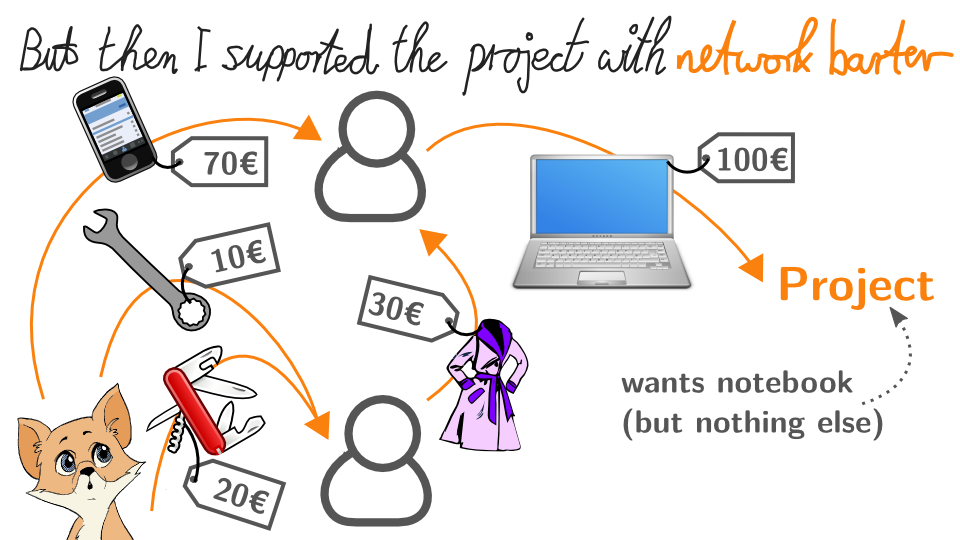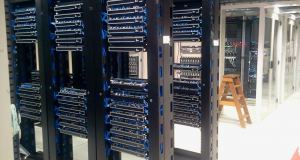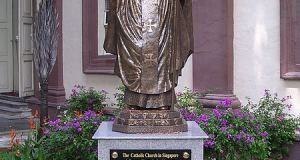
Makerfox was a moneyless crowdfunding platform. So it's a bit like Kickstarter, but without monetary transactions. There's still mention of things like dollars on the site though. Fortunately I personally met Matthias, one of the guys behind the site at the unMonastery in Matera, Italy. So I sent him some questions to clarify some things.
Matthias is also the creator of EarthOS, a "constantly evolving open content project where I collect and orchestrate existing open hardware and open source projects and own ideas into a system with which you could manage all material and technological requirements of living, from food to water supply, mobility to clothing, health care to Internet connection." More about that in another article soon.
What is Makerfox?
Makerfox is a young web-based crowdfunding platform and marketplace that works without money. We focus on funding projects with "collective benefits", such as a open source, open content, open hardware etc.. And instead of money, we use a form of algorithmic barter that we invented and called "network barter".
Network barter
Network barter is a flexible form of true barter. So, everyone gets as much as they give, in products and services and at the same time. No accounts with digitized rights ("money") needed. In contrast to normal one-on-one barter, it can be 100 or more people in one such barter trade, and that is what makes it more flexible, more probable to happen.
How did you come up with the idea?
The 2008 financial/economic crisis made me want to fix the absurdity of economic exclusion. You know, the thing that is usually called "unemployment": people with both needs and skills to offer are excluded from economic exchange. Just because money fails to connect them with skills and needs of others, and money is the only major tool society uses for that.
A major driver was that I experienced the problem first-hand: in late 2012 I was a self-employed IT guy with no contracts to speak of, and had to sell most of my furniture to pay obligatory German health insurance. (Could've been worse. I heard of a guy who had to burn his furniture to stay warm.) [Moneyless.org note: German health insurance is very complex, Matthias wrote an article about low health insurance fees for self-employed Germans, there's also this article in German with some tips for dealing with health insurance without income in Germany]
At first I had no clear idea how I wanted to solve that but dreamed of a smartphone app that could make these connections. With a big green "Start the Economy" button. So I called it Economy App and entered it into the first-ever European Social Innovation Competition. When I made it to semi-finals, I needed a clearer idea, and together with my brother Daniel we invented network barter in a half-hour discussion, standing in my parents kitchen. I knew Evgeni's Circular Multilateral Barter software and was inspired by it, and network barter is basically a generalization of it that uses arbitrary graph shaped bartering rather than pure cycles. With all that, we won a prize in the competition: in effect it was seed funding from the European Commission, enabling us to sit down for a year and code that platform.
How does it work in practice?
The short version: look at our example trade, illustrating a donation of 100 bucks to a project. It converts your phone, wrench and pocket knife to a notebook, for which your supported project has use.

Instructions to make it happen: You go to the Makerfox Projects list, find a project you like, and donate a dollar value to it. Instead of cash, you offer products or services in return on the market. (Like, a used phone. C'm on, everyone has a used phone!) Then just wait. Somebody else will order what you offer, and offer what your project wants. Or a much more complex setup to the same effect (for example, 100 people in one trade, as it happens in our simulations). The Makerfox will automatically find such a trade, make it happen and notify you by e-mail. Then ship your product or provide your service, take a look what your project got in exchange, and be happy you could help it along.
Since this type of crowdfunding needs no money, projects can jump over that step of chasing this scarce resource. We expect that network barter will make crowdfunding a much more powerful and ubiquitous tool, and could support the maker economy (hence the name).
That was it about moneyless crowdfunding. In addition, Makerfox includes a moneyless marketplace for products and services, and in the future network barter could also power whatwever else we currently need money for, incl. microcredits, investing, venture capital. (Just not storing value, but that is a feature.) These uses are for other platforms though.
Oh and, I forgot to tell you our sustainability model: When projects use their donations to purchase goods and services through barter deals, and when anyone else purchases from the barter marketplace, the Makerfox gets a 7% commission. In barter value, not in money.
How many people and organisations are using it?
We have 200 people with Makerfox accounts now and a bit of a chicken-and-egg problem. Means, not much happens because not much happens. Or maybe we are too fascinated by developing the tech side of things and too bored of marketing it? :P
Anyway, we invented the moneyless crowdfunding feature to get past the problem. Anyone with a useful underfunded project can come, start a campaign on makerfox.com and spread the word. Once there are five to ten such campaigns in parallel, with people donating to them and offering something in return, we expect that automatic barter deals start to happen, funding the projects without money.
BTW, me and my brother (Makerfox co-founder) browsed moneyless.org for a time today. Very resourceful, entertaining even, esp. that hilarious story about the half train ticket sticking out of your mouth. Man, you have the guts! :)






